- Home
- Nora Roberts
Genuine Lies Page 4
Genuine Lies Read online
Page 4
Paul put a hand on Eve’s arm, but his eyes were on Julia. Because he didn’t bother to disguise it, Julia now could see the source of the hostility she’d been feeling. “Why don’t we let the interview wait until working hours?”
“Don’t be so snotty, Paul,” Eve said mildly. With a laugh, she patted his hand. She turned to Julia. “He disapproves. I’m sure he thinks I’ll spill his secrets along with mine.”
“You don’t know mine.”
This time her laugh took on an edge. “My dear boy, there is no secret, no lie, no scandal I don’t know. At one time it was thought that Parsons and Hopper were the ones to worry about. But they didn’t know how to hold on to a secret until it had ripened.” She drank again, as if toasting some private triumph. “How many calls have you fielded in the last two weeks, Nina, from worried luminaries?”
Nina let out a sigh. “Dozens.”
“Exactly.” Pleased, Eve sat back. In the candlelight, her eyes glittered like the jewels at her ears and around her throat. “It’s tremendously satisfying to be the one throwing the shit at the fan. And you, Drake, as my press agent, what do you think about my project?”
“That you’re going to make a lot of enemies. And a lot of money.”
“I’ve spent fifty years doing both of those things already. How about you, Ms. Summers, what do you hope to get out of this?”
Julia set her glass aside. “A good book.” She caught Paul’s look of derision and stiffened. She would have preferred to empty her water goblet into his lap, but relied on dignity. “Of course, I’ve gotten used to people considering celebrity biographies a long step below literature.” Her gaze shifted to meet his. “Just as many people consider popular fiction a bastard form of writing.”
Eve threw back her head and laughed; Paul picked up his fork to toy with the remnants of his trout. His clear blue eyes had darkened, but his voice was mild as he asked, “What do you consider your work, Ms. Summers?”
“Entertainment,” she said without hesitation. “What do you consider yours?”
He ignored the question and leapt on her answer. “So you believe it’s entertaining to exploit the name and the life of a public figure?”
She no longer felt like biting her nails, but pushing up her sleeves. “I doubt Sandburg thought so when he wrote of Lincoln. And I certainly don’t believe an authorized biography is exploitative of its subject!”
“You’re not comparing your work to Sandburg’s?”
“Yours has been compared to Steinbeck’s.” She moved her shoulders carelessly, though her temper was heating fast. “You tell a story based on imagination—or lies. I tell one based on facts and memories. The result of both techniques is that the finished work is read and enjoyed.”
“I’ve certainly read and enjoyed works by both of you,” Nina said, stepping in as peacemaker. “I’ve always been in awe of writers. All I do is compose business correspondence. Of course, Drake has those punchy press releases.”
“Which are a mix of truth and lies,” he said. He turned to Julia with a smile. “I suppose you’ll be interviewing people other than Eve, for a rounded picture.”
“That’s the usual procedure.” “I’m available. Anytime.”
“It looks like Darla’s ready for dessert,” Eve said dryly and rang for the last course. “The cook made raspberry trifle. You’ll take some back to Brandon.”
“Oh, yes, your little boy.” Satisfied the conversation had cooled, Nina poured more wine. “We were hoping to meet him tonight.”
“He was exhausted.” Julia snuck a peek at her watch. It succeeded only in reminding her that her body insisted it was past midnight. “I imagine he’ll be wide awake by four A.M. and wondering why the sun hasn’t come up.”
“He’s ten?” Nina asked. “You look much too young to have a ten-year-old.”
Julia’s polite smile was her only comment. She turned to Eve as the last dessert dish was served. “I wanted to ask you what portions of the estate are off limits.”
“The boy can have the run of the place. He swims?”
“Yes. Very well.”
“Then we won’t worry about the pool. Nina will let you know whenever I plan to entertain.”
Knowing her duty, Julia forced herself to stay alert until after the meal was finished. Even the single glass of dinner wine had been a mistake, she realized. Desperate for bed, she excused herself, thanking her hostess. It didn’t please her at all that Paul insisted on walking her back.
“I know the way.”
“There’s not much of a moon tonight.” He took her elbow and steered her onto the terrace. “It’s easy to get turned around in the dark. Or you might fall asleep on your feet and tumble into the pool.”
Julia shifted away from him automatically. “I swim very well myself.”
“That may be, but chlorine’s hell on silk.” He pulled a slim cigar from his pocket, and, cupping his hands around a lighter, touched the flame to the end. He’d noticed several things about her that evening, one of which was that she hadn’t wanted her child to become dinner conversation. “You could have told Eve you were as exhausted as your son.”
“I’m fine.” She tilted her head to study his profile as they walked. “You don’t care for my profession, do you, Mr. Winthrop?”
“No. But then, this biography is Eve’s business, not mine.”
“Whether you care for it or not, I’m expecting an interview.”
“And do you get what you expect, always?”
“No, but I get what I’m after. Always.” She stopped at the door to the guest house. “Thank you for seeing me back.”
Very cool, he thought. Very controlled, very slick. He might have accepted her at face value if he hadn’t noticed her right thumbnail was chewed down to the quick. In a deliberate test he moved a little closer. While she didn’t jerk away, she did shoot up an invisible wall. It would be interesting, he decided, to see if she did the same with all men, or just with him. At the moment, he had only one priority.
“Eve Benedict is the most important person in my life.” His voice was low, dangerous. “Be careful, Ms. Summers. Be very careful. You wouldn’t want to have me as an enemy.”
Her palms had gone damp, and that infuriated her. She coated her temper with ice. “It appears I already have. And what I will be, Mr. Winthrop, is thorough. Very thorough. Good night.”
By ten o’clock on Monday, Julia was ready. She’d spent the weekend with her son, taking advantage of the mild weather by delivering on her promised trip to Disneyland and throwing in the bonus of the Universal tour. He’d acclimated quickly—more quickly than she—to the time change.
She knew they’d both suffered from nerves when they’d walked into his new school that morning. They’d had their interview with the principal before Brandon, looking very small and brave, had gone off to his first class. Julia had filled out dozens of forms, shaken the principal’s hand, and had remained composed during the drive home.
Then she’d indulged herself in a long crying jag. Now, with her face carefully rinsed and made up, her tape recorder and notebook in her briefcase, she rang the bell on the front door of the main house. Moments later, Travers opened the door and sniffed as if in disapproval. “Miss Benedict is up in her office. She’s expecting you.” So saying, she turned and led the way upstairs.
The office was in the center leg of the “E,” with a wide half-moon window making up the front wall. The other three were lined with shelves that held the awards of Eve’s long career. The statuettes and plaques were interspersed with photographs and playbills and memorabilia from her movies.
Julia recognized the white lace fan that had been a prop in an antebellum film, the sexy red high heeled shoes Eve had worn when she’d played an equally scarlet saloon singer, the rag doll she had clung to when she’d starred as a mother searching for a lost child.
She also noted that the office wasn’t as tidy as the rest of the house. It was as richly furnished with a co
mbination of antiques and vivid colors. The wallpaper was silk, the carpet deep and soft. But beside the huge rosewood desk where Eve sat were piles of scripts. A coffee machine, its pot already half empty, stood on a Queen Anne table. Stacks of Variety littered the floor, and the ashtray beside the phone Eve was barking into overflowed.
“They can take their certificate of honor and shove it.” She gestured Julia inside with a smoldering cigarette, then took a deep drag. “I don’t give a fuck if it is good press, Drake, I’m not flying out to Timbuktu to sit through a chicken dinner with a bunch of bloody Republicans. It may be the nation’s capital, but it’s Timbuktu to me. I didn’t vote for the sucker, I’m not going to have dinner with him.” She gave a snort and tapped the cigarette partially out on the corpses of others. “You handle it. That’s what you’re paid to do.” Hanging up, she waved Julia toward a seat. “Politics. It’s for idiots and bad actors.”
Julia placed her briefcase beside her chair. “Shall I quote you?”
Eve merely smiled. “I take it you’re ready to get to work. I thought we should have our first session in a businesslike atmosphere.”
“Wherever you’re comfortable.” Julia glanced at the mound of scripts. “Rejections?”
“Half of them want me to play somebody’s grandmother, the other half want me to take my clothes off.” She hefted a foot clad in a red sneaker and gave the pile a shove. It toppled over, an avalanche of dreams. “A good writer’s worth a king’s ransom.”
“And a good actor?”
Eve laughed. “Knows how to turn straw into gold—like any magician.” She lifted a brow when Julia took her tape recorder and set it on the coffee table. “What’s on and off the record is up to me.”
“Naturally.” She’d simply make sure to get everything she wanted on the record. “I don’t break trusts, Miss Benedict.”
“Everyone does, eventually.” She waved a long, narrow hand studded with a single, glowing ruby. “Before I begin breaking mine, I want to know more about you—and not just the crap in your press kit. Your parents?”
More impatient than annoyed, Julia folded her hands in her lap. “They’re both dead.”
“Siblings?”
“I was an only child.”
“You never married.”
“No.”
“Why?”
Though there was a little twist of pain, Julia’s voice remained level and calm. “I never chose to.”
“As I’ve been in and out of the institution four times, I can’t recommend it, but it seems to me that raising a child alone would be difficult.”
“It has its problems, and its rewards.”
“Such as?”
The question threw her so that she had to school herself not to squirm. “Such as having only your own feelings to rely on when making decisions.”
“And is that problem or reward?”
A faint smile curved Julia’s lips. “Both.” She took her pad and a pencil out of her briefcase. “Since you can give me only two hours today, I’d like to get started. Naturally I know the background information that’s been made public. You were born in Omaha, the second of three children. Your father was a salesman.”
All right, Eve decided, they would begin. What she had to learn she would learn as they went along. “A traveling salesman,” Eve put in as Julia pressed the record button. “I’ve always suspected I had several half siblings scattered through the central plains. In fact, I’ve been approached many times by people claiming relationships, and hoping for handouts.” “How do you feel about that?”
“It was my father’s problem, not mine. An accident of birth doesn’t equal a free ride.” Steepling her fingers, she sat back. “I made my success. On my own. If I were still Betty Berenski from Omaha, do you think any of those people would have bothered with me? But Eve Benedict’s a different matter. I left Betty and the cornfields behind when I was eighteen. I don’t believe in looking back.”
That was a philosophy Julia both understood and respected. She began to feel thrumming excitement—the birth of the intimacy that made her work of this kind so successful.
“Tell me about your family. What it was like for Betty growing up?”
With her head back, she laughed. “Oh, my older sister will be appalled to see in print that I called our father a philanderer. But truth is truth. He hit the road to sell his pots and pans—always sold enough to keep the wolf from the door. He would come back with little trinkets for his girls. Chocolates or handkerchiefs or ribbons. There were always presents from Daddy. He was a big, handsome man with black hair and a mustache and red cheeks. We doted on him. We also did without him five days out of seven.”
She plucked up a cigarette and lighted it. “We would do his laundry on Saturdays. His shirts reeked of perfume. On Saturdays my mother always lost her sense of smell. Never once did I hear her question or accuse or complain. She was not a coward, she was … quiescent, accepting her lot in life, and her husband’s infidelity. I think she knew that she was the only woman he loved. When she died, quite suddenly—I was sixteen—my father was a lost soul. He grieved for her until he died five years later.” She paused, leaning forward again. “What do you write there?”
“Observations,” Julia told her. “Opinions.”
“And what do you observe?”
“That you loved your father, and were disappointed in him.”
“What if I told you that’s bullshit?”
Julia tapped her pencil against the pad. Yes, there had to be understanding, she thought. And a balance of power. “Then we’d both be wasting our time.”
After a moment’s silence Eve reached for the phone. “I want fresh coffee.”
By the time Eve had instructed the kitchen, Julia had made the decision to steer away from more discussion of family. When she understood Eve better, she would come back to it.
“You were eighteen when you first came to Hollywood,” she began. “Alone. Fresh off the farm, so to speak. I’m interested in your feelings, your impressions. What was it like for that young girl from Omaha stepping off the bus in Los Angeles?”
“Exciting.”
“You weren’t afraid?”
“I was too young to be afraid. Too cocky to believe I could fail.” Eve stood and began to stalk the room. “We were at war, and our boys were being shipped off to Europe to fight and die. I had a cousin, a funny kid who joined the navy and went to the South Pacific. He came back in a box. His funeral was in June. In July I packed my bags. I’d suddenly learned that life could be very short, and very cruel. I wasn’t going to waste another second of it.”
Travers brought in the coffee. “Set it down there,” Eve ordered with a gesture toward the low table in front of Julia. “Let the girl pour.”
Eve took her coffee black, then leaned against the corner of her desk. Julia scribbled her observations: Eve’s strengths— revealed in her face, her voice, the lines of her body.
“I was naive,” Eve said huskily, “but not stupid. I knew I had taken a step that would change my life. And I understood there would be sacrifices and hardships. Loneliness. You understand?”
Julia remembered lying in a hospital bed at eighteen, a small, helpless baby in her arms. “Yes, I do.”
“I had thirty-five dollars when I stepped off the bus, but I didn’t intend to go hungry. I had a portfolio stuffed with pictures and clippings.”
“You’d done some modeling.”
“Yes, and little theater. Back in those days the studio sent out scouts, more to get publicity than actually do talent searches. But I realized it would be a cold day in hell when a scout got around to discovering me in Omaha. So I decided to go to Hollywood. And that was that. I took a job at a diner, got myself a few spots as an extra at Warner Bros. The trick was to be seen—on the lot, on a set, at the commissary. I volunteered at the Hollywood Canteen. Not selflessly, not because of the GIs, but because I knew I would be rubbing elbows with stars. Causes or good deeds were the last thin
gs on my mind. I was concerned with myself, completely. You find that cold, Ms. Summers?”
Julia couldn’t think why her opinion would matter, but she considered before she answered. “Yes. I also imagine it was practical.”
“Yes.” Eve’s mouth firmed. “Ambition requires practicality. And it was a heady experience, watching Bette Davis pour coffee, Rita Hay worth serve sandwiches. And I was a part of it. It was there I met Charlie Gray.”
The dance floor was packed with GIs and pretty girls. The scents of perfume, aftershave, smoke, and black coffee crowded the air. Harry James was playing, and the music was hot. Eve liked hearing the trumpet soar over the noise and laughter. After a full shift at the diner, and the hours spent dogging agents, her feet were killing her. It didn’t help that the shoes she’d bought secondhand were a half size too small.
She made certain the fatigue didn’t show in her face. You could never be sure who might drop in, and notice. She was damn certain she’d have to be noticed only once to start the climb.
Smoke hung at the ceiling, curling around the wagon-wheel

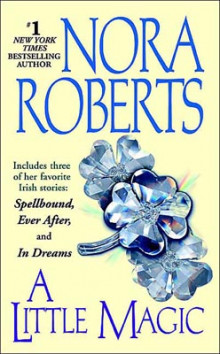 A Little Magic
A Little Magic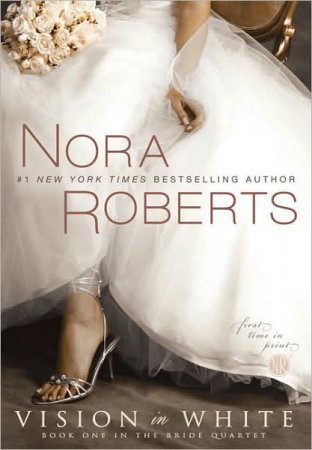 Vision in White
Vision in White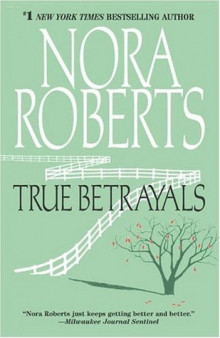 True Betrayals
True Betrayals The Next Always
The Next Always A Man for Amanda
A Man for Amanda Born in Fire
Born in Fire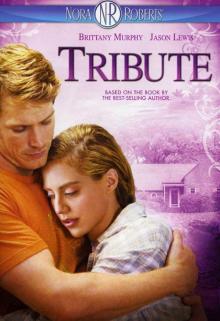 Tribute
Tribute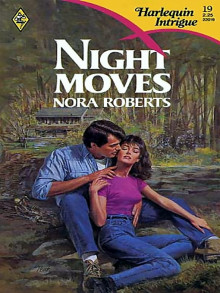 Night Moves
Night Moves Dance Upon the Air
Dance Upon the Air The Name of the Game
The Name of the Game Jewels of the Sun
Jewels of the Sun River's End
River's End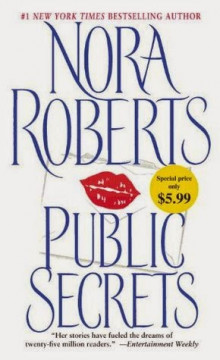 Public Secrets
Public Secrets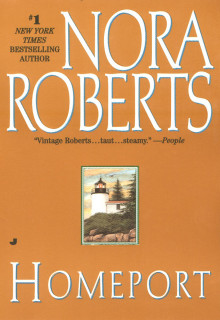 Homeport
Homeport Private Scandals
Private Scandals The Witness
The Witness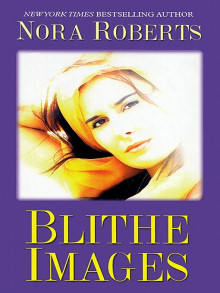 Blithe Images
Blithe Images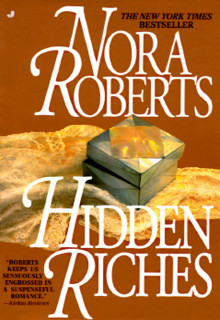 Hidden Riches
Hidden Riches Key of Light
Key of Light Divine Evil
Divine Evil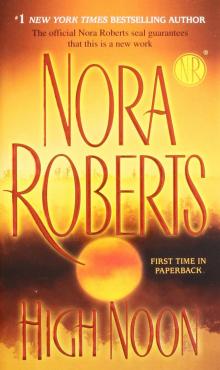 High Noon
High Noon Blue Dahlia
Blue Dahlia Sea Swept
Sea Swept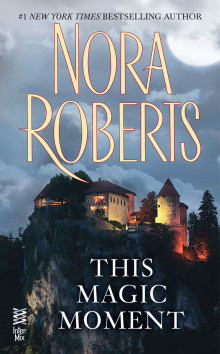 This Magic Moment
This Magic Moment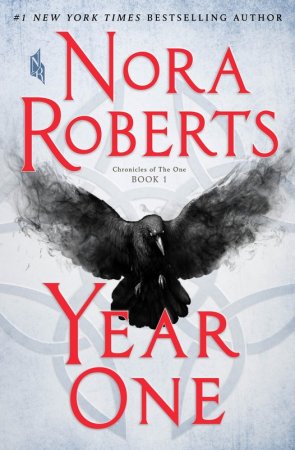 Year One
Year One A Little Fate
A Little Fate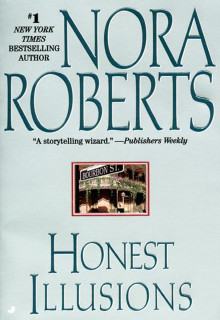 Honest Illusions
Honest Illusions The Reef
The Reef Shelter in Place
Shelter in Place The Hollow
The Hollow Holding the Dream
Holding the Dream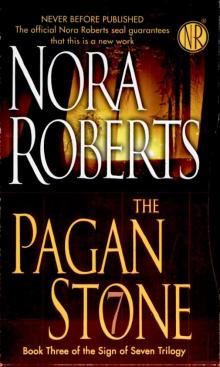 The Pagan Stone
The Pagan Stone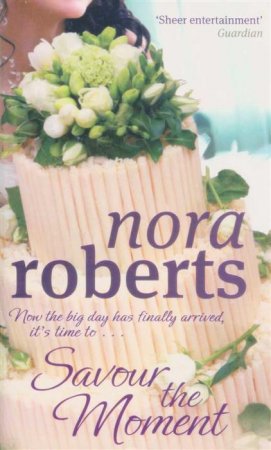 Savour the Moment
Savour the Moment The Perfect Hope
The Perfect Hope Island of Glass
Island of Glass Happy Ever After
Happy Ever After Bed of Roses
Bed of Roses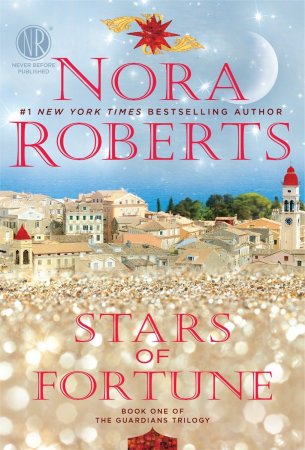 Stars of Fortune
Stars of Fortune Dark Witch
Dark Witch The Return of Rafe MacKade
The Return of Rafe MacKade Chesapeake Blue
Chesapeake Blue The Perfect Neighbor
The Perfect Neighbor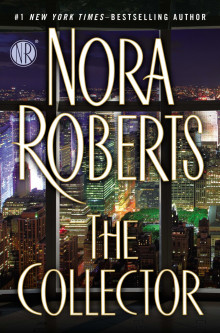 The Collector
The Collector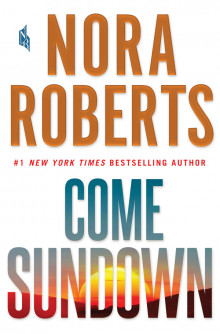 Come Sundown
Come Sundown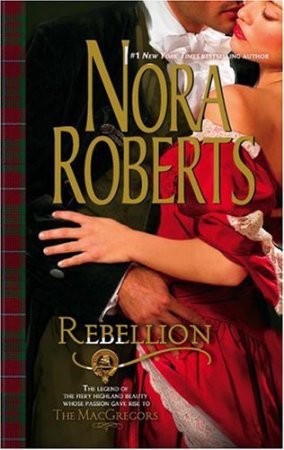 Rebellion
Rebellion Affaire Royale
Affaire Royale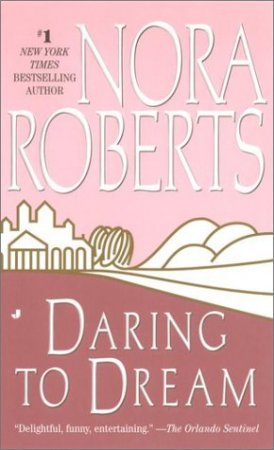 Daring to Dream
Daring to Dream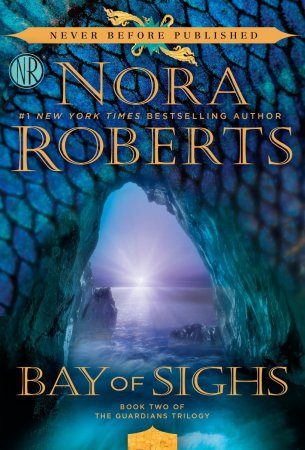 Bay of Sighs
Bay of Sighs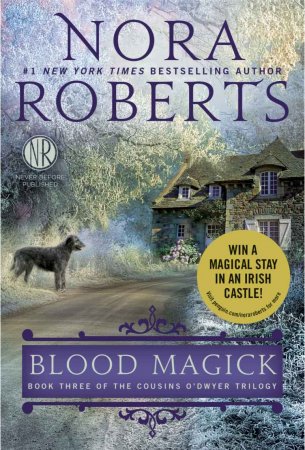 Blood Magick
Blood Magick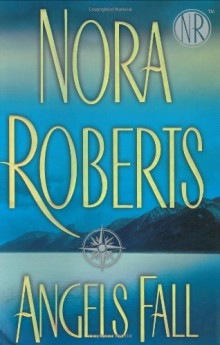 Angels Fall
Angels Fall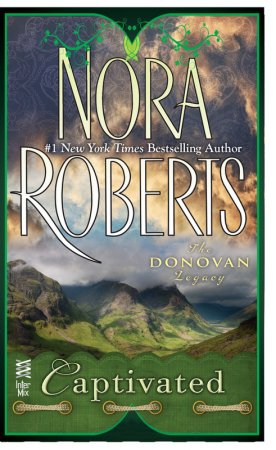 Captivated
Captivated The Last Boyfriend
The Last Boyfriend Irish Thoroughbred
Irish Thoroughbred Inner Harbor
Inner Harbor The Right Path
The Right Path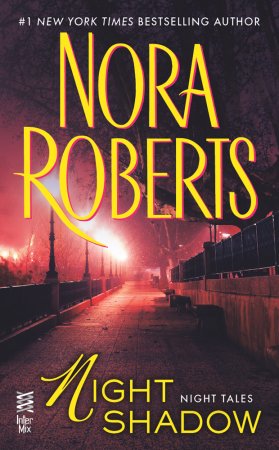 Night Shadow
Night Shadow The Heart of Devin MacKade
The Heart of Devin MacKade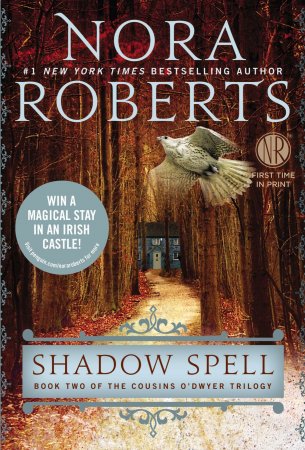 Shadow Spell
Shadow Spell The Playboy Prince
The Playboy Prince The Fall of Shane MacKade
The Fall of Shane MacKade Rising Tides
Rising Tides Command Performance
Command Performance Hidden Star
Hidden Star Cordina's Crown Jewel
Cordina's Crown Jewel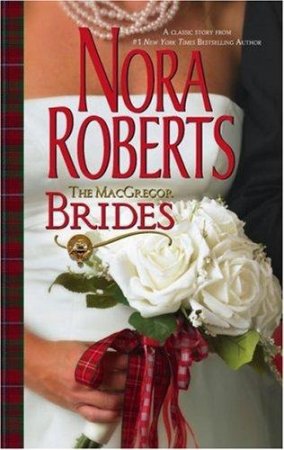 The MacGregor Brides
The MacGregor Brides The Pride of Jared MacKade
The Pride of Jared MacKade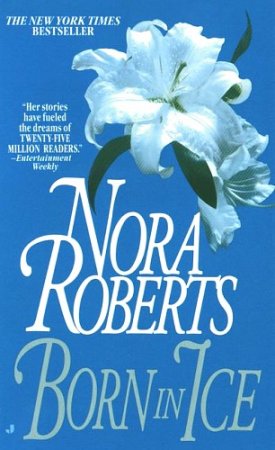 Born in Ice
Born in Ice Whiskey Beach
Whiskey Beach The Last Honest Woman
The Last Honest Woman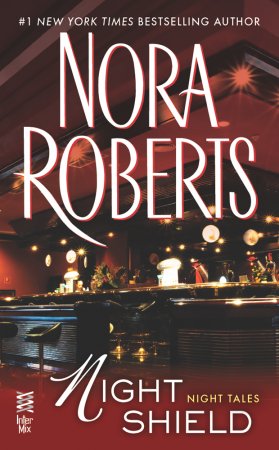 Night Shield
Night Shield Born in Shame
Born in Shame Secret Star
Secret Star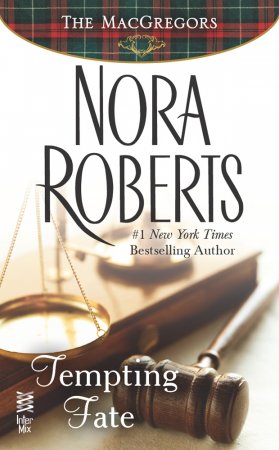 Tempting Fate
Tempting Fate Nightshade
Nightshade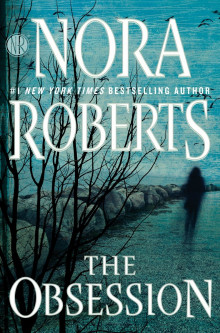 The Obsession
The Obsession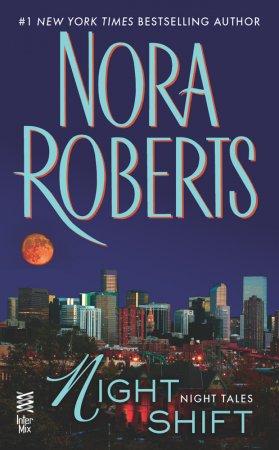 Night Shift
Night Shift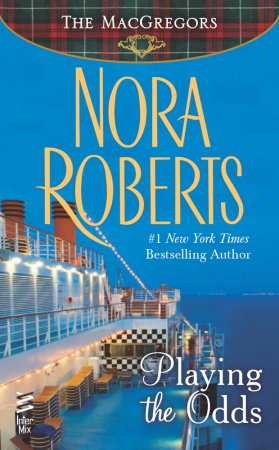 Playing The Odds
Playing The Odds Tears of the Moon
Tears of the Moon One Man's Art
One Man's Art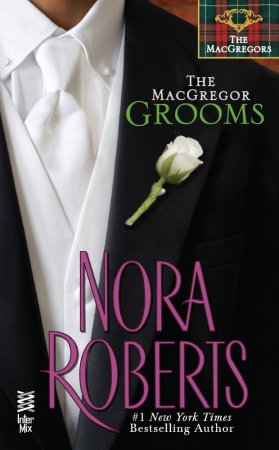 The MacGregor Groom
The MacGregor Groom Irish Rebel
Irish Rebel Morrigan's Cross
Morrigan's Cross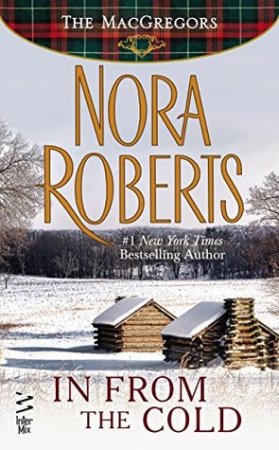 In From The Cold
In From The Cold Night Smoke
Night Smoke Finding the Dream
Finding the Dream Red Lily
Red Lily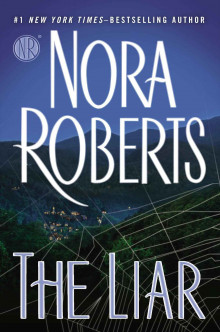 The Liar
The Liar Montana Sky
Montana Sky Heart of the Sea
Heart of the Sea All The Possibilities
All The Possibilities Opposites Attract
Opposites Attract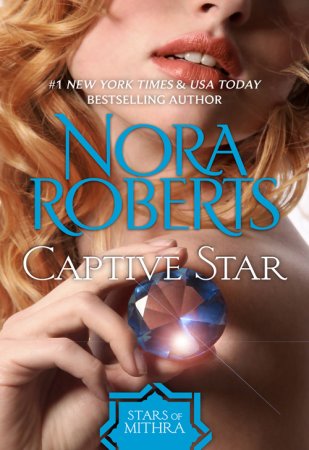 Captive Star
Captive Star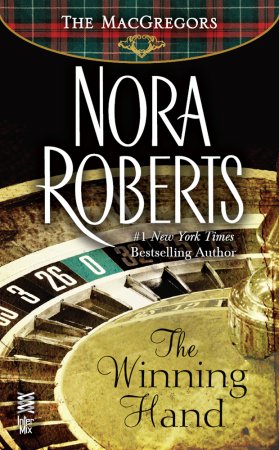 The Winning Hand
The Winning Hand Key of Valor
Key of Valor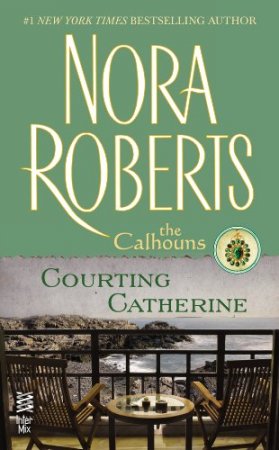 Courting Catherine
Courting Catherine Heaven and Earth
Heaven and Earth Face the Fire
Face the Fire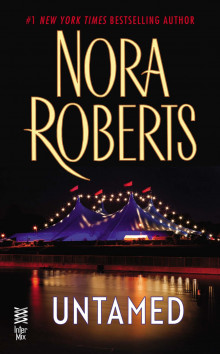 Untamed
Untamed Skin Deep
Skin Deep Enchanted
Enchanted Song of the West
Song of the West Suzanna's Surrender
Suzanna's Surrender Entranced
Entranced Dance of the Gods
Dance of the Gods Key of Knowledge
Key of Knowledge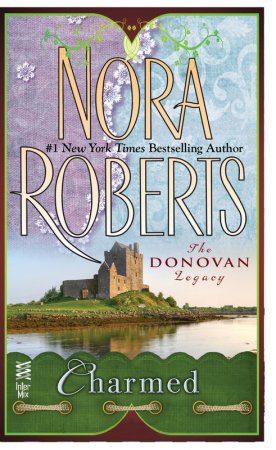 Charmed
Charmed For Now, Forever
For Now, Forever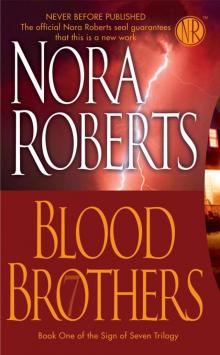 Blood Brothers
Blood Brothers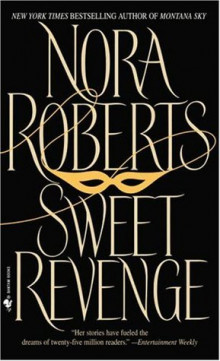 Sweet Revenge
Sweet Revenge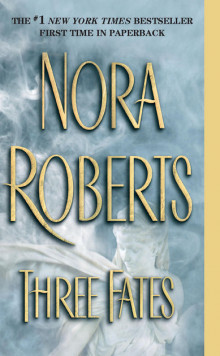 Three Fates
Three Fates Mind Over Matter
Mind Over Matter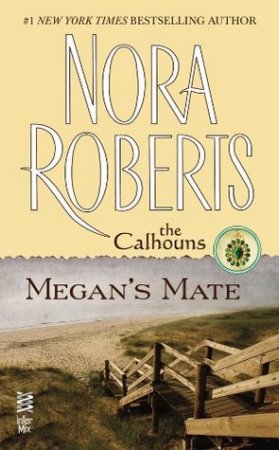 Megan's Mate
Megan's Mate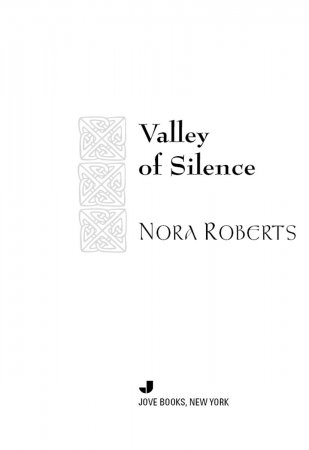 Valley of Silence
Valley of Silence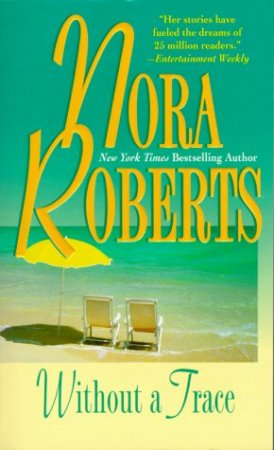 Without A Trace
Without A Trace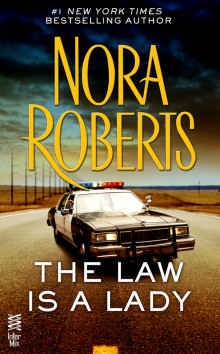 The Law is a Lady
The Law is a Lady Temptation
Temptation Dance to the Piper
Dance to the Piper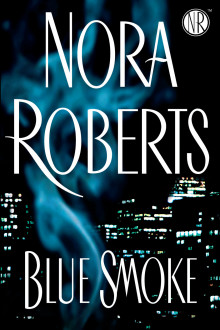 Blue Smoke
Blue Smoke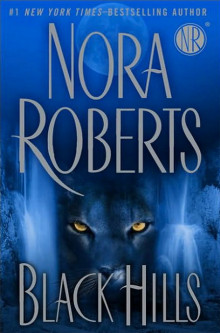 Black Hills
Black Hills The Heart's Victory
The Heart's Victory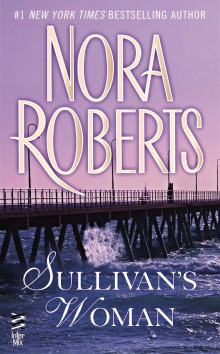 Sullivan's Woman
Sullivan's Woman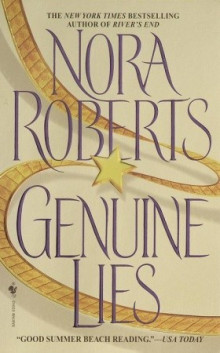 Genuine Lies
Genuine Lies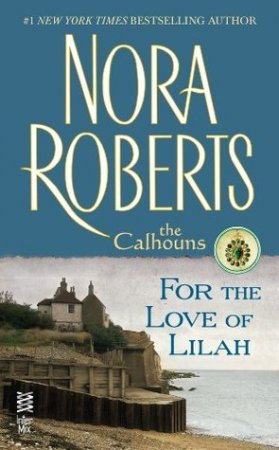 For the Love of Lilah
For the Love of Lilah Gabriel's Angel
Gabriel's Angel Irish Rose
Irish Rose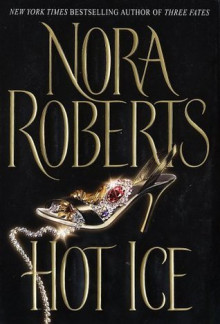 Hot Ice
Hot Ice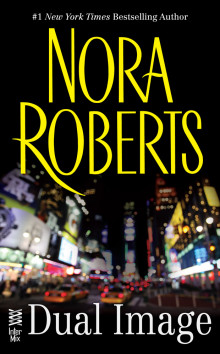 Dual Image
Dual Image Lawless
Lawless Catch My Heart
Catch My Heart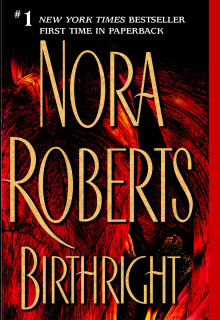 Birthright
Birthright First Impressions
First Impressions Chasing Fire
Chasing Fire Carnal Innocence
Carnal Innocence Best Laid Plans
Best Laid Plans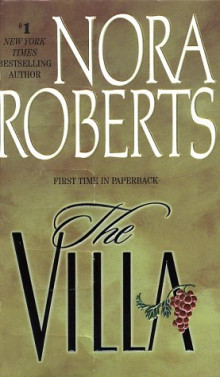 The Villa
The Villa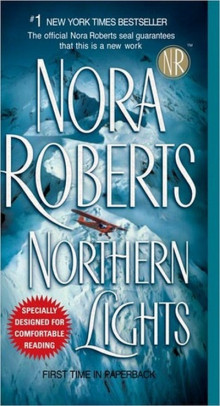 Northern Lights
Northern Lights Local Hero
Local Hero Island of Flowers
Island of Flowers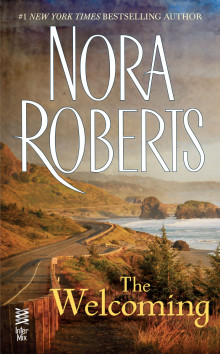 The Welcoming
The Welcoming All I Want for Christmas
All I Want for Christmas Black Rose
Black Rose Hot Rocks
Hot Rocks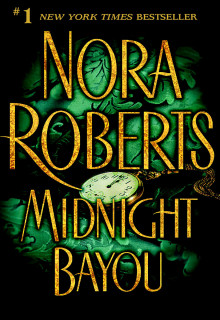 Midnight Bayou
Midnight Bayou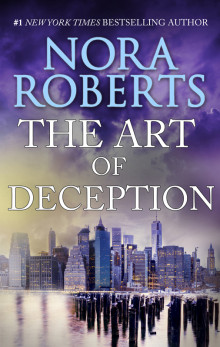 The Art of Deception
The Art of Deception From This Day
From This Day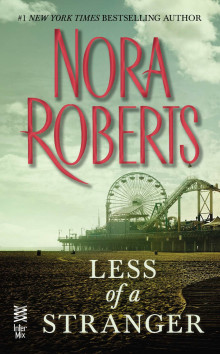 Less of a Stranger
Less of a Stranger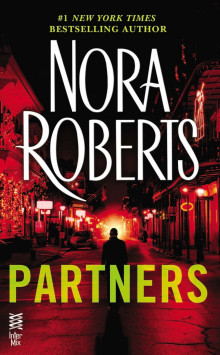 Partners
Partners Storm Warning
Storm Warning Once More With Feeling
Once More With Feeling Her Mother's Keeper
Her Mother's Keeper Sacred Sins
Sacred Sins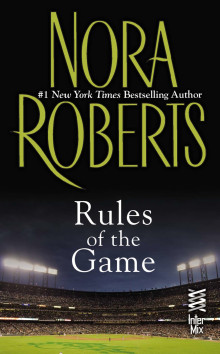 Rules of the Game
Rules of the Game Sanctuary
Sanctuary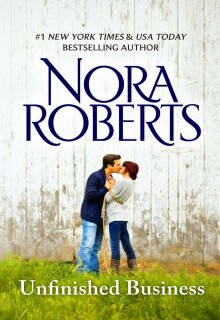 Unfinished Business
Unfinished Business Cordina's Royal Family Collection
Cordina's Royal Family Collection Dangerous Embrace
Dangerous Embrace One Summer
One Summer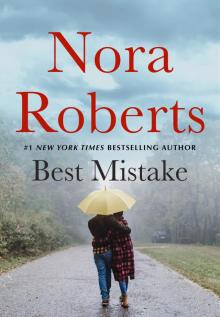 The Best Mistake
The Best Mistake Boundary Lines
Boundary Lines Under Currents
Under Currents The Stanislaski Series Collection, Volume 1
The Stanislaski Series Collection, Volume 1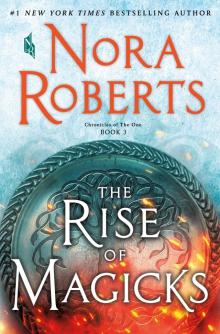 The Rise of Magicks
The Rise of Magicks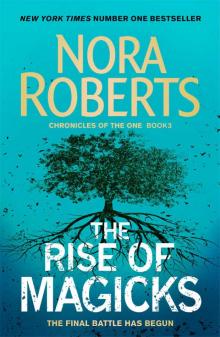 The Rise of Magicks (Chronicles of The One)
The Rise of Magicks (Chronicles of The One) The Awakening: The Dragon Heart Legacy Book 1
The Awakening: The Dragon Heart Legacy Book 1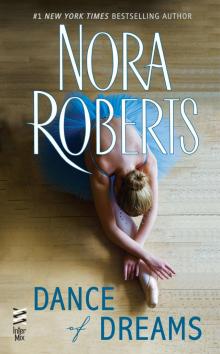 Dance of Dreams
Dance of Dreams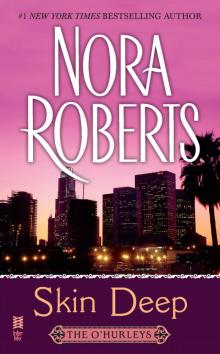 Skin Deep: The O'Hurleys
Skin Deep: The O'Hurleys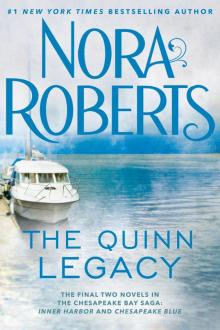 The Quinn Legacy: Inner Harbor ; Chesapeake Blue
The Quinn Legacy: Inner Harbor ; Chesapeake Blue![[Chronicles of the One 03.0] The Rise of Magicks Read online](http://i1.bookreadfree.com/11/chronicles_of_the_one_03_0_the_rise_of_magicks_preview.jpg) [Chronicles of the One 03.0] The Rise of Magicks
[Chronicles of the One 03.0] The Rise of Magicks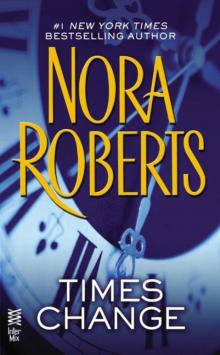 Times Change
Times Change Dance to the Piper: The O'Hurleys
Dance to the Piper: The O'Hurleys Christmas In the Snow: Taming Natasha / Considering Kate
Christmas In the Snow: Taming Natasha / Considering Kate Waiting for Nick
Waiting for Nick Summer Desserts
Summer Desserts Dream 2 - Holding the Dream
Dream 2 - Holding the Dream The Novels of Nora Roberts, Volume 2
The Novels of Nora Roberts, Volume 2 In the Garden Trilogy
In the Garden Trilogy Eight Classic Nora Roberts Romantic Suspense Novels
Eight Classic Nora Roberts Romantic Suspense Novels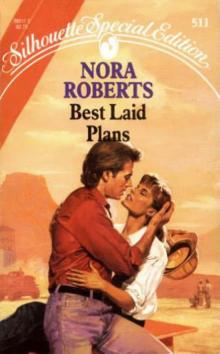 Best Laid Plans jh-2
Best Laid Plans jh-2 From the Heart
From the Heart Holiday Wishes
Holiday Wishes Dream 1 - Daring to Dream
Dream 1 - Daring to Dream Second Nature
Second Nature Summer Pleasures
Summer Pleasures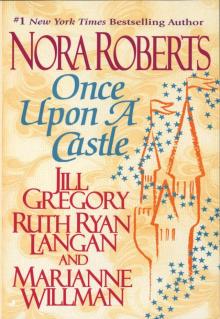 Once Upon a Castle
Once Upon a Castle Stars of Mithra Box Set: Captive StarHidden StarSecret Star
Stars of Mithra Box Set: Captive StarHidden StarSecret Star Impulse
Impulse The Irish Trilogy by Nora Roberts
The Irish Trilogy by Nora Roberts The Pride Of Jared Mackade tmb-2
The Pride Of Jared Mackade tmb-2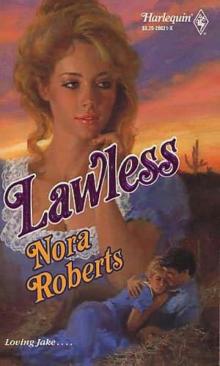 Lawless jh-3
Lawless jh-3 Taming Natasha
Taming Natasha Endless Summer
Endless Summer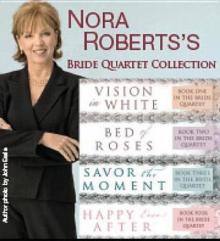 Bride Quartet Collection
Bride Quartet Collection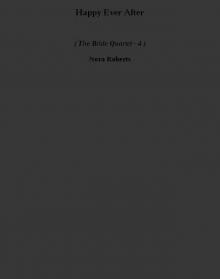 Happy Ever After tbq-4
Happy Ever After tbq-4 Heart Of The Sea goa-3
Heart Of The Sea goa-3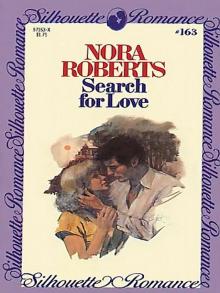 Search for Love
Search for Love Once upon a Dream
Once upon a Dream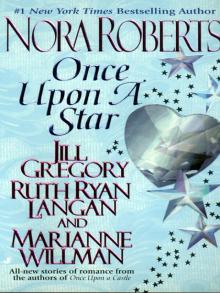 Once Upon a Star
Once Upon a Star Dream Trilogy
Dream Trilogy Risky Business
Risky Business The Novels of Nora Roberts, Volume 3
The Novels of Nora Roberts, Volume 3 Dream 3 - Finding the Dream
Dream 3 - Finding the Dream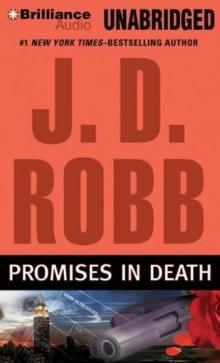 Promises in Death id-34
Promises in Death id-34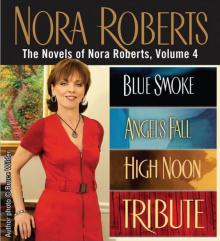 The Novels of Nora Roberts, Volume 4
The Novels of Nora Roberts, Volume 4 The Perfect Hope ib-3
The Perfect Hope ib-3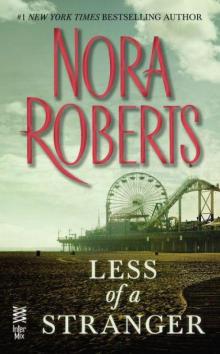 Less than a Stranger
Less than a Stranger Savour the Moment: Now the Big Day Has Finally Arrived, It's Time To...
Savour the Moment: Now the Big Day Has Finally Arrived, It's Time To... Convincing Alex
Convincing Alex Bed of Roses tbq-2
Bed of Roses tbq-2 Savour the Moment tbq-3
Savour the Moment tbq-3 Lessons Learned
Lessons Learned Key Of Valor k-3
Key Of Valor k-3 Red lily gt-3
Red lily gt-3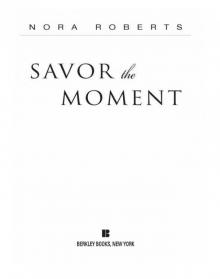 Savor the Moment
Savor the Moment The Return Of Rafe Mackade tmb-1
The Return Of Rafe Mackade tmb-1 For The Love Of Lilah tcw-3
For The Love Of Lilah tcw-3 Black Rose gt-2
Black Rose gt-2 Novels: The Law is a Lady
Novels: The Law is a Lady Chesapeake Bay Saga 1-4
Chesapeake Bay Saga 1-4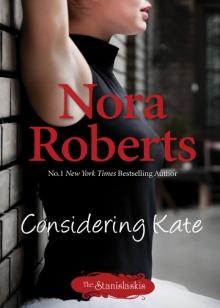 Considering Kate
Considering Kate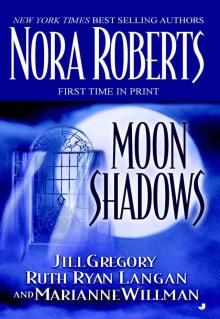 Moon Shadows
Moon Shadows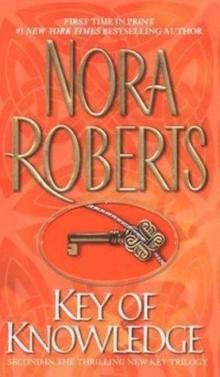 Key of Knowledge k-2
Key of Knowledge k-2 The Sign of Seven Trilogy
The Sign of Seven Trilogy Once Upon a Kiss
Once Upon a Kiss The Novels of Nora Roberts, Volume 5
The Novels of Nora Roberts, Volume 5 Suzanna's Surrender tcw-4
Suzanna's Surrender tcw-4 The Quinn Brothers
The Quinn Brothers Falling for Rachel
Falling for Rachel Brazen Virtue
Brazen Virtue Time Was
Time Was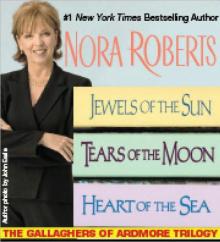 The Gallaghers of Ardmore Trilogy
The Gallaghers of Ardmore Trilogy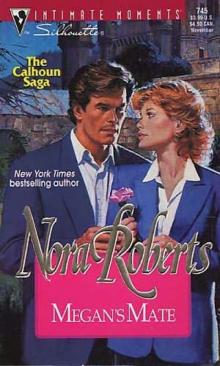 Megan's Mate tcw-5
Megan's Mate tcw-5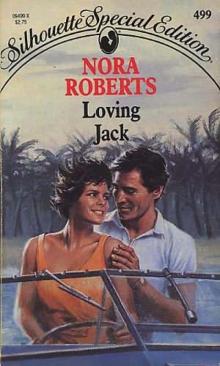 Loving Jack jh-1
Loving Jack jh-1 Rebellion & In From The Cold
Rebellion & In From The Cold Blue Dahlia gt-1
Blue Dahlia gt-1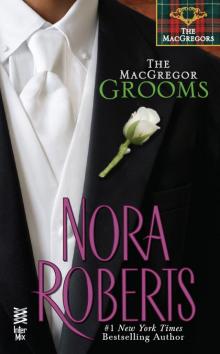 The MacGregor Grooms
The MacGregor Grooms The Next Always tibt-1
The Next Always tibt-1 The Heart Of Devin Mackade tmb-3
The Heart Of Devin Mackade tmb-3 The Novels of Nora Roberts Volume 1
The Novels of Nora Roberts Volume 1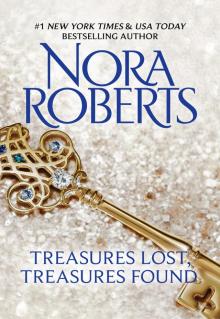 Treasures Lost, Treasures Found
Treasures Lost, Treasures Found Nora Roberts's Circle Trilogy
Nora Roberts's Circle Trilogy The Key Trilogy
The Key Trilogy The Fall Of Shane Mackade tmb-4
The Fall Of Shane Mackade tmb-4 A Will And A Way
A Will And A Way Jewels of the Sun goa-1
Jewels of the Sun goa-1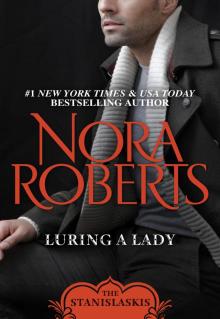 Luring a Lady
Luring a Lady